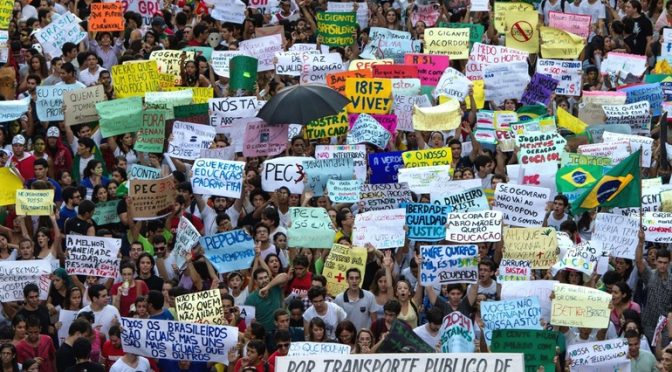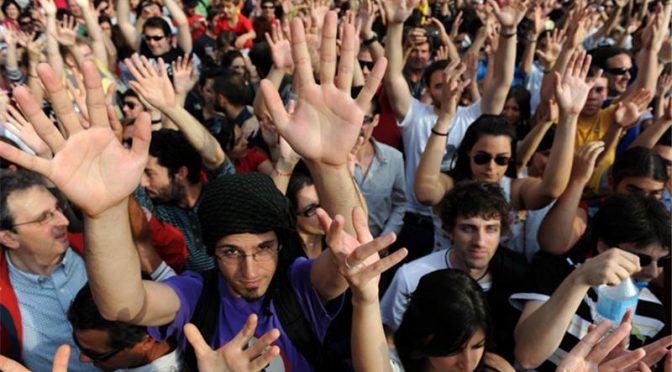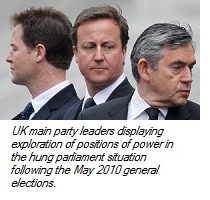
By Prabhakar Overland
All over the world the economy is getting worse for ordinary people.1 Well paid jobs are disappearing and purchasing power is stalled.
When most of the fit population no longer have a decent income, they will neither be able to fend for themselves nor contribute to the economy. Due to the ensuing weak consumption and economic …

The present system of democracy relies on political parties as a means for directing voting processes, representation, etc.
Party politics however only seems to teach us to be quarrelsome, judgemental, divisive, backtracking, tricky, crooked, etc. The party system could be said to act as a bar to natural basic human cooperation.
In fact, the party system generates a class of …

Picture above: Youth protesters on Madrid's Plaza del Sol manifesting against unemployment and corruption among politicians
[Prout Globe, June 2016] – Issue-oriented movements are challenging old-fashioned party politics everywhere. The trend is obvious in Europe where scores of popular movements, such as Italy’s Five Star Movement (currently holding the mayoral post of Rome), Spain’s Podemos, and Greece’s Golden Dawn continue …
P.R. Sarkar
Party politics is one of the factors which stands, or tries to stand, in the way of human unity. In fact party politics is even more dangerous than disease-causing germs. In party politics all the refined attributes of the human mind, such as simplicity and the spirit of service, slowly but surely get totally destroyed. Party affiliation commands …
 (May 11, 2010) – Take a look at the snapshot [of Gordon Brown, Nick Clegg and David Cameron]. Do you get a good impression? — Neither do we: Three UK top politicians deeply involved in playing their fundamental game of self-service. The picture indicates that they don’t think much of each other, doesn’t it? A follow-up question would be: What …
(May 11, 2010) – Take a look at the snapshot [of Gordon Brown, Nick Clegg and David Cameron]. Do you get a good impression? — Neither do we: Three UK top politicians deeply involved in playing their fundamental game of self-service. The picture indicates that they don’t think much of each other, doesn’t it? A follow-up question would be: What …
For the good and happiness of all




